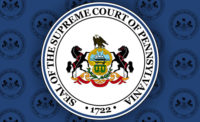Using Independent Contractors? Watch Out
Many contractors may face increased scrutiny and risk associated with using “independent contractors” to perform work on their jobs. While hiring subcontractors is an appropriate selection, some businesses attempt to save payroll taxes and withholdings by designating individuals who are, in essence, employees as independent contractors. Given the current tax and funding shortfalls, various federal and state regulatory entities are focused on closing these loopholes and enforcing regulations designed to present false or fraudulent classifications.
Regulatory and Statutory Action Abuse of independent contractor status continues to get significant regulatory and legislative attention. Critics of this practice argue that misclassifying employees as independent contractors is an unfair competitive advantage and robs governments of justly due employment-related taxes. At the federal level, legislation H.R. 3408 was proposed during 2009, “The Taxpayer Responsibility, Accountability and Consistency Act of 2009.” This bill would dramatically curtail current safe harbor provisions.
Recently, Sen. John Kerry proposed S. 2882 which would rewrite existing safe harbor provisions and require all employers to obtain written documentation from the IRS as a precondition to independent contractor status. Both the house and senate bills increase penalties associated with misclassifications.
In addition to statutory changes, the regulatory environment appears to be changing with the new administration. There are rumblings of an increased enforcement at the Internal Revenue Service on classification related issues. The U.S. Department of Labor requested a fiscal year 2011 budget that included significant increases oversight and enforcement of wage regulations, classification issues, and occupation and safety laws and regulations. Associated Builders and Contractors recently reported that $25 million of DOL’s budget is dedicated to a joint DOL and U.S. Treasury enforcement effort directly targeted at independent contractor classifications. ABC quotes Jane Oates, assistant secretary at DOL’s Enforcement and Training Administration as saying, “The goal is to improve capacity to identify misclassification through increased information sharing and targeted audits in high-risk industry sectors.”

HUGHES
State Efforts The feds are not the only ones getting in on the action. The State of Maryland has created a multi-agency taskforce to coordinate investigations of work place fraudulent practice including misclassification of employees. The task force report, issued in December 2009, details tens of millions of dollars of lost tax revenue which makes this topic tasty to legislators in these cash-strapped times. For the construction and landscaping industries in particular, Maryland enacted the Workplace Fraud Act of 2009 on May 7, 2009, effective October 1, 2009. The WFA imposes more record keeping requirements and places a firm burden of proof on the employer to justify their workplace classifications.
Other states are pursuing similar efforts. While we are not aware currently of specific measures in Virginia or the District of Columbia, this issue is getting significant attention. It also presents an easy way for government to target potential additional tax and penalty funding. In these times of governmental budgetary shortfalls, we should assume that other states may follow suit with a more aggressive enforcement approaching moving forward.
Practical Tips We see this issue continuing to gather steam, especially given the nationwide budget and tax shortfall issues faced at every level of government. Here are some take-aways:
1. Contractors should be extremely conservative in classifying independent contractors;
2. Be wary of exercising too much control over independent contractors; control is generally the most basic test for employees versus independent contractors;
3. Know the regulatory standards and get help analyzing the questions; and
4. Understand the downside: not just payments of the back taxes, but potentially interest, very heavy penalties, imposition of personal liability on corporate owners, and even criminal sanctions.

